XI GENERAL ASSEMBLY AND X INTERNATIONAL SEMINAR OF CGBU
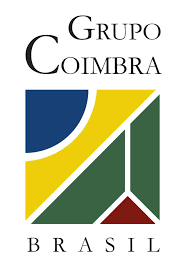
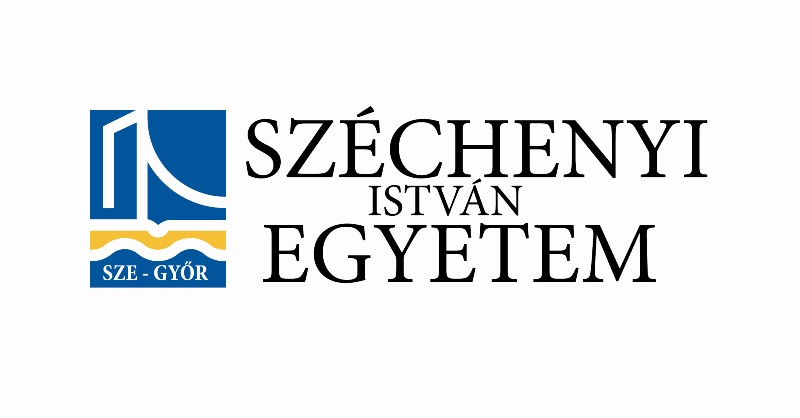 XI GENERAL ASSEMBLY AND X INTERNATIONAL SEMINAR OF THE COIMBRA GROUP OF BRAZILIAN UNIVERSITIES (CGBU)
XI GENERAL ASSEMBLY AND X INTERNATIONAL SEMINAR OF THE COIMBRA GROUP OF BRAZILIAN UNIVERSITIES (CGBU)
“GLOBAL UNIVERSITIES IN THE 21st CENTURY: CHARACTERISTICS, TRENDS AND MAIN CHALLENGES”
Budapest University of Technology and Economics
24 – 27 September 2018
Széchenyi István University, Győr, was worthily represented at the Tenth International Seminar of the CGBU by members of the University’s senior management, senior academic staff and affiliate academics who delivered presentations in plenaries or parallel sessions.
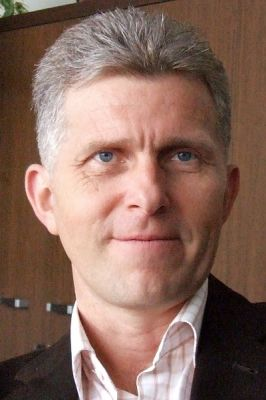 On Wednesday 26th September, Dr Tibor Dőry, Head of Department, Associate Professor Széchenyi István University, Győr and Director, Mobilis Science Centre, delivered a presentation entitled “Innovation and Entrepreneurship at Hungarian Universities: The Case of Széchenyi István University”. Dr Dőry initiated his presentation with an outline of the key trends that impact universities today. Going on to consider the topic of entrepreneurial universities, he then presented HEInnovate – a self-assessment tool for HEIs. Following on with an examination of models of co-operation between universities and businesses, he approached the principal theme of his presentation: the specific case of Széchenyi István University, Győr. Among topics mentioned were SZE’s ambition to become a research university, the intensive collaboration Széchenyi István enjoys with the business community, dual education, research projects, the needs for continuous education and MBA / PhD programmes, the focus on student projects and the support and hosting of student competitions. Importantly, he defined the Triple Helix type of collaborations as a key factor in the institution’s continuous development.
On Wednesday 26th September, Dr Tibor Dőry, Head of Department, Associate Professor Széchenyi István University, Győr and Director, Mobilis Science Centre, delivered a presentation entitled “Innovation and Entrepreneurship at Hungarian Universities: The Case of Széchenyi István University”. Dr Dőry initiated his presentation with an outline of the key trends that impact universities today. Going on to consider the topic of entrepreneurial universities, he then presented HEInnovate – a self-assessment tool for HEIs. Following on with an examination of models of co-operation between universities and businesses, he approached the principal theme of his presentation: the specific case of Széchenyi István University, Győr. Among topics mentioned were SZE’s ambition to become a research university, the intensive collaboration Széchenyi István enjoys with the business community, dual education, research projects, the needs for continuous education and MBA / PhD programmes, the focus on student projects and the support and hosting of student competitions. Importantly, he defined the Triple Helix type of collaborations as a key factor in the institution’s continuous development.
In the latter part of his consideration of Széchenyi István University’s specific situation, Dr Dőry contemplated the way ahead, contrasting scientific excellence vs. the „publish or perish” culture in academia, and also outlining appropriate entrepreneurial attitudes and approaches to be encouraged among academics. In addition, he stressed the need to involve students in company projects. Completing his exposition with a view into the future, Dr Dőry expressed his hopes for the creation of a Higher Education and industry collaboration centre.
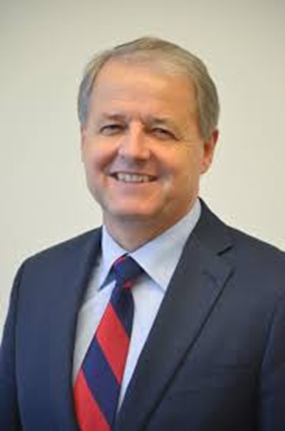 In the afternoon parallel sessions on 26th September, speakers from several countries and continents presented innovative experiences for 21st century global universities. Dr Gyula Vastag, Director, Doctoral Program in Management (SZEEDSM), Széchenyi István University, was rapporteur for the presentation entitled “Branding and Marketing Strategies of an International University in the New Media Era”
In the afternoon parallel sessions on 26th September, speakers from several countries and continents presented innovative experiences for 21st century global universities. Dr Gyula Vastag, Director, Doctoral Program in Management (SZEEDSM), Széchenyi István University, was rapporteur for the presentation entitled “Branding and Marketing Strategies of an International University in the New Media Era”
Having opened the presentation with an introduction to the concept of branding in Higher Education, Professor Vastag emphasized the significance of an institution’s local and global visibility. Subsequently, he gave an overview of the 4-year curriculum and the system of assessment which has been developed on the SZEEDSM Doctoral Program in Management at Széchenyi István University, Győr. His focus then turned to the numbers of students in the different cohorts of the programme and the 23 prominent academics and lecturers both from Hungary and around the globe who form the backbone of the teaching staff on the programme.
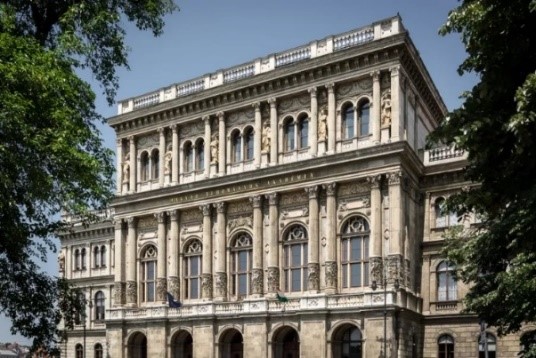 In the evening of 26th September, conference participants attended a Gala Dinner at the Hungarian Academy of Sciences. Opening speeches were given by Zoltán Dubéczi, Secretary General, Hungarian Rectors’ Conference and General Coordinator of the CGBU Conference and José Arimatéia Dantas Lopes, CGBU President as well as Péter Tordai, Director, Tempus Public Foundation.
In the evening of 26th September, conference participants attended a Gala Dinner at the Hungarian Academy of Sciences. Opening speeches were given by Zoltán Dubéczi, Secretary General, Hungarian Rectors’ Conference and General Coordinator of the CGBU Conference and José Arimatéia Dantas Lopes, CGBU President as well as Péter Tordai, Director, Tempus Public Foundation.
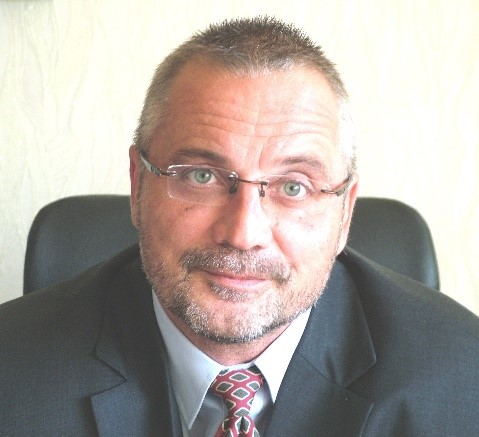 In the fifth plenary session of the Seminar on Thursday, 27th September, Dr Péter Földesi, Rector, Széchenyi István University, delivered a presentation entitled “Start-ups, Spin-offs, Technology Transfer Incubation: Different Regional Approaches”. Following a brief introduction to Széchenyi István University, the Rector indicated that as far as innovation is concerned, Hungary is still on a learning curve, and revealed that in 2017 in the field of innovation decisive for competitiveness and economic growth, the country is ranked 22nd in the European Union. The chief problems, according to Dr Földesi‘s analysis, are due to the low level of innovation activity of small and medium-sized enterprises and issues surrounding intellectual property rights. Furthermore, in 2016 funding was low due to the cyclical nature of EU funds.
In the fifth plenary session of the Seminar on Thursday, 27th September, Dr Péter Földesi, Rector, Széchenyi István University, delivered a presentation entitled “Start-ups, Spin-offs, Technology Transfer Incubation: Different Regional Approaches”. Following a brief introduction to Széchenyi István University, the Rector indicated that as far as innovation is concerned, Hungary is still on a learning curve, and revealed that in 2017 in the field of innovation decisive for competitiveness and economic growth, the country is ranked 22nd in the European Union. The chief problems, according to Dr Földesi‘s analysis, are due to the low level of innovation activity of small and medium-sized enterprises and issues surrounding intellectual property rights. Furthermore, in 2016 funding was low due to the cyclical nature of EU funds.
Dr Földesi further elaborated on the fact that in an international comparison, within the total R&D, the proportion of basic research is low and the proportion of experimental development extremely high, whereas in HEIs the ratio of applied research is low. The development of innovation is hindered by the legal system in the form of strict government controls and the fact that state-owned universities are not permitted to take risks with funds making venture capital hard to come by.
Dr Földesi identified that the goal is to shift Hungarian economic players towards the production of higher value added and increased efficiency, which over the long term can ensure sustainable economic growth. In his analysis of the current situation with regards to innovation, the Rector mentioned a further difficulty with HEIs: researchers wanting to create large developments in one step. Instead he recommended that they should be working cyclically, dealing with small sustainable developments then returning to R&D. At the conclusion of his presentation, in a further reference to innovation in Higher Education, Dr Földesi stated his opinion that, as important elements of an efficient innovation ecosystem, Science and Technology parks should be closely linked to Universities.
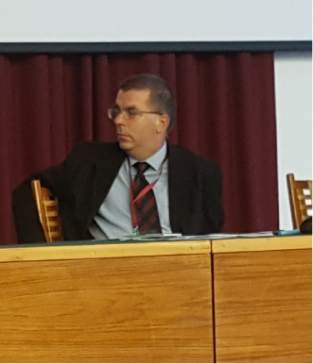 At this point in the proceedings, following the three presentations of session 5, Dr Barnabás Kovács, Consul General, Hungarian Consulate General in Barcelona, as Debater, coordinated a discussion centering on the solutions the plenary speakers are currently searching for, in order to encourage and develop innovation in their respective areas. For his part, Dr Földesi discussed the importance of the safeguarding of unique ideas by developing forms of innovation that cannot easily be illegally appropriated.
At this point in the proceedings, following the three presentations of session 5, Dr Barnabás Kovács, Consul General, Hungarian Consulate General in Barcelona, as Debater, coordinated a discussion centering on the solutions the plenary speakers are currently searching for, in order to encourage and develop innovation in their respective areas. For his part, Dr Földesi discussed the importance of the safeguarding of unique ideas by developing forms of innovation that cannot easily be illegally appropriated.
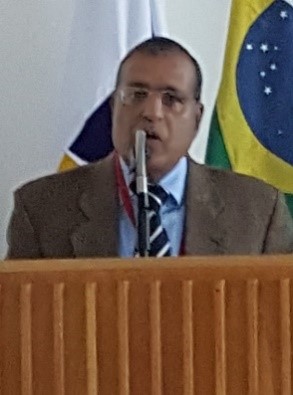 “The University and its Urban Environment – Opportunities, Collaborations and Regional Impact” was the theme of Session 6 of the plenaries, which took place in the latter half of Thursday morning. The second plenary speaker was Gauri Shankar Gupta, former Ambassador and High Commissioner of India to Hungary. Currently a registered student of the Doctoral School of Management (SzEEDSM) at Széchenyi István University, Győr, Mr Gupta’s presentation, “Environmental Considerations in an Urban Setting” was a jargon-free exposition of the extent to which the degradation of our environment has become the greatest challenge to humanity. Mr Gupta demonstrated how mass migration has exacerbated this urban crisis and stressed his conviction that environmental issues must be incorporated into educational curricula at all levels. Most importantly, he considers pollution as a societal issue to be dealt with collectively and universally.
“The University and its Urban Environment – Opportunities, Collaborations and Regional Impact” was the theme of Session 6 of the plenaries, which took place in the latter half of Thursday morning. The second plenary speaker was Gauri Shankar Gupta, former Ambassador and High Commissioner of India to Hungary. Currently a registered student of the Doctoral School of Management (SzEEDSM) at Széchenyi István University, Győr, Mr Gupta’s presentation, “Environmental Considerations in an Urban Setting” was a jargon-free exposition of the extent to which the degradation of our environment has become the greatest challenge to humanity. Mr Gupta demonstrated how mass migration has exacerbated this urban crisis and stressed his conviction that environmental issues must be incorporated into educational curricula at all levels. Most importantly, he considers pollution as a societal issue to be dealt with collectively and universally.
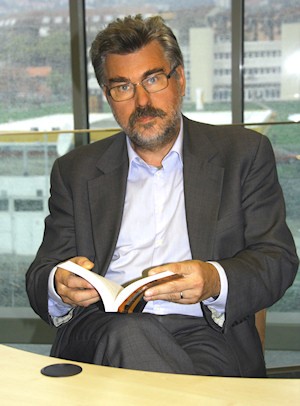 Also participating in the CGBU-MRK Conference was Dr László Imre Komlósi, professor in the Kautz Gyula Faculty of Economics and Rector’s Envoy for International Cooperation at Széchenyi István University, who attended the events on 25th and 26th September. He commented on the importance of the presence of such a high number of Brazilian Rectors and Vice-Rectors who, via the events of the conference as well as institutional visits and networking, were able to witness the quality of Hungarian Higher Education. Professor Komlósi also appreciated the wide choice of themes encompassed by the presentations in the plenaries and the parallel sessions.
Also participating in the CGBU-MRK Conference was Dr László Imre Komlósi, professor in the Kautz Gyula Faculty of Economics and Rector’s Envoy for International Cooperation at Széchenyi István University, who attended the events on 25th and 26th September. He commented on the importance of the presence of such a high number of Brazilian Rectors and Vice-Rectors who, via the events of the conference as well as institutional visits and networking, were able to witness the quality of Hungarian Higher Education. Professor Komlósi also appreciated the wide choice of themes encompassed by the presentations in the plenaries and the parallel sessions.











